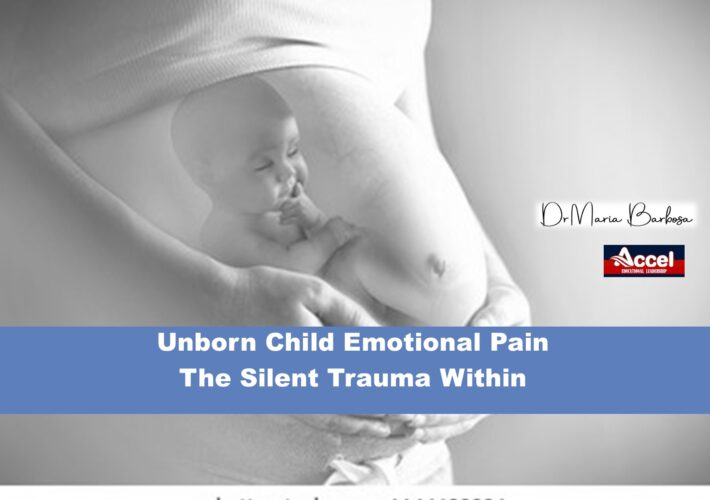Empowering Women PART 1
Discover the Strength Within
Women, when distanced from their families, embark on a transformative journey that often leads to unparalleled strength and success in various aspects of life. However, the challenge arises when they grapple with homesickness, questioning the decisions that brought them to unfamiliar territories. The emotional turmoil that follows, marked by feelings of emptiness, tears, and depression, and others emotions can disrupt their focus and delay progress in both professional and personal life.
Emotional Struggles: The Silent Battle
Being an emigrant comes with its share of challenges, and one of the most profound yet silent battles is the emotional struggle faced by women away from their families. This emotional turmoil manifests in various ways, creating a rollercoaster of feelings that often go unnoticed. In this article, we delve into the intricacies of these emotional struggles, shedding light on the common negative emotions experienced by women who are distanced from their familiar support systems.
Here are few common negative emotions that women may experience:
- Homesickness: Perhaps the most prevalent emotion, homesickness manifests as a deep longing for the familiarity of home, family, friends and the routines left behind. It can lead to feelings of sadness, isolation, and a yearning for the comfort of familiar surroundings.
- The Profound Sense of Emptiness: Emptiness becomes a constant companion for emigrant women. The void left by the absence of family and familiar surroundings is palpable, leading to a deep sense of isolation. This emptiness, like a persistent shadow, influences daily life, work, and relationships.
- Loneliness: Being away from family can result in a profound sense of loneliness. This isolation can be exacerbated by the absence of close relationships and the struggle to build new connections in an unfamiliar environment.
- Guilt: The pursuit of personal or professional goals away from family may evoke feelings of guilt. Women may grapple with the internal conflict of prioritizing their ambitions while being aware of the emotional impact it might have on their relationships.
- Depression: The cumulative effect of homesickness, loneliness, and guilt can lead to depressive feelings. The weight of these emotions, if left unaddressed, may contribute to a sense of hopelessness and affect overall mental well-being.
- Anxiety: The uncertainties and challenges of a new environment, coupled with the responsibility of forging a path away from family, can trigger anxiety. Fear of the unknown, financial concerns, and the pressure to succeed can all contribute to heightened levels of anxiety.
- Stress: Juggling the demands of work, personal growth, and the emotional toll of separation can result in elevated stress levels. The inability to find a balance may lead to burnout and impact both professional and personal aspects of life.
- Self-Doubt: The absence of familial support can sometimes amplify self-doubt. Women may question their decisions, capabilities, and whether the pursuit of independence was the right choice, leading to a lack of confidence in various aspects of their lives.
- Cultural Adjustment Struggles: If living in a different cultural context, women may experience frustration and discomfort in adapting to new customs, societal norms, and communication styles. This cultural dissonance can contribute to a sense of alienation.
- Identity Crisis: The distance from family can prompt a reassessment of identity. Women may grapple with questions of who they are outside of the familial context, leading to an internal struggle to define their individuality.
Seeking support is not a sign of weakness but a foundation upon which emotional resilience is constructed. Women, when facing the challenges of life away from their families, must proactively reach out for assistance. This can be in the form of friends, colleagues, or professional counselors who offer a supportive network.
Overcoming Emotional Struggles
- Positive Outlook and Faith: As someone who has faced these emotional struggles firsthand, adopting a positive outlook and having faith played pivotal roles in overcoming the silent battle. Believing in a higher power and trusting that life will unfold as it should provided a source of strength during moments of vulnerability.
- Spiritual Practices: Explore spiritual practices that resonate with you, such as prayer or meditation. For many, connecting with their spiritual beliefs can provide a source of strength and comfort.
- Building a Support System: Creating a new support system in the adopted country became crucial. Connecting with fellow emigrants, joining social groups, and churches members can help navigating the emotional challenges. Building relationships and finding a sense of belonging aided in filling the void left by the absence of family.
- Engaging in Purposeful Activities: Distracting oneself from the emotional turmoil by engaging in purposeful activities can be transformative. Pursuing hobbies, volunteering, or immersing in work not only serves as a distraction but also contributes to personal growth and fulfillment.
- Self-Compassion Practices: Cultivate self-compassion by treating yourself with kindness and understanding during difficult times. Practice self-compassion exercises to counter self-critical thoughts and build resilience.
- Shared Experiences: Many women face similar challenges, and sharing experiences can provide comfort and valuable insights. This shared strength can become a pillar of emotional support.
From a Christian perspective, for example, maintaining a positive outlook and having faith are often seen as integral components of navigating through life’s difficulties. The belief in a higher power, in this case, God, Jesus and Holy Spit can provide a profound source of comfort and assurance.
Positive Outlook: The concept of a positive outlook aligns with the biblical teachings that emphasize hope and resilience in the face of adversity. Scriptures often encourage believers to focus on the positive aspects of life, trusting that God has a plan even in challenging times.
Philippians 4:8 (New International Version) advises, “Finally, brothers and sisters, whatever is true, whatever is noble, whatever is right, whatever is pure, whatever is lovely, whatever is admirable—if anything is excellent or praiseworthy—think about such things.”
Maintaining a positive perspective can be seen as an act of faith, expressing trust that, ultimately, things will improve.
Faith, in the context of overcoming emotional struggles, involves a deep trust in God’s wisdom and guidance. It is the belief that, despite current challenges, there is a higher purpose at play.
Hebrews 11:1 (New International Version) defines faith: “Now faith is confidence in what we hope for and assurance about what we do not see.”
Having faith implies surrendering control to a higher power and relying on divine strength to endure and overcome emotional battles.
Trusting Life’s Unfolding: Believing that life will unfold as it should reflects the idea that God has a plan for each individual. This perspective encourages acceptance and trust in the divine order of events.
Proverbs 3:5-6 (New International Version) captures this sentiment: “Trust in the Lord with all your heart and lean not on your own understanding; in all your ways submit to him, and he will make your paths straight.”
Conclusion
Many women experience being stuck in the past emotions, a place where the repeats of old wounds and unresolved conflicts resonate. This emotional pain can manifest in various forms, from anxiety and self-doubt to an overall sense of restlessness. Breaking free from this cycle requires a profound understanding of the roots of these struggles. Dr. Maria Barbosa can help you with past traumas and emotional old wounds. I will provide a safe and non-judgmental space for “you” clients to express their emotions freely.
Trusting in God’s plan provides a foundation for resilience, allowing individuals to face emotional struggles with the assurance that they are not alone in their journey.
It is important to maintaining a positive attitude, having faith, and trusting in the unfolding of life are considered essential aspects of overcoming emotional struggles. These principles did work for me, I strongly believe can provide individuals with strength, hope, and a sense of purpose, drawing on their connection to a higher power, because did for me.
Dr. Barbosa provides services to client in Portuguese, English and Spanish. for an appointment -WhatsApp (386)206-6325
Maria Pinto Barbosa PhD / Certified as School Board of Education / PHD-Doctor of Philosophy in Cristian Clinical Counseling- ACCEL-Holistic Life Coach / Founder-Director of ACCEL Educational Leadership/ Specialized on Temperaments – Personalities/ Pastor Christian Minister Clergy / Bachelor of Theology in Pastoral leadership and Certified EETAD Theolog
Discover more from Dr Maria Barbosa
Subscribe to get the latest posts sent to your email.





